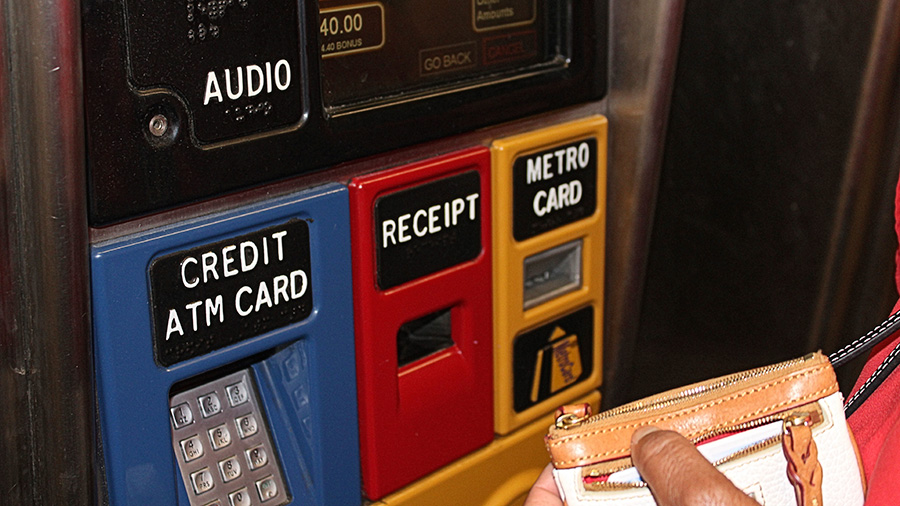One day last week, in New York City for meetings, I was waiting in line at a subway MetroCard machine, and noticed that the woman behind me was practically vibrating with anger and frustration.
Technically, she was just trying to help. Or at least that’s what she may have thought, in some part of her mind. But in the real world, she was waving her arms and shouting a stream of invective at the people at the head of the line. I’ve euphemized her language:
“You made me miss my foolish train! If you don’t know how to get a foolish MetroCard, get out of the foolish way and let someone else do it!”
Wielding Help as a Weapon
At the machine, a woman was struggling to help two young women who were clearly from out of town. Unfortunately, though, the machine had switched to Spanish mode, and as she tried to explain to the rest of the line, she herself hadn’t been in New York for a while, so her memory of how the screens worked was rusty. At any rate, the machine wasn’t cooperating.
The screamer behind me “offered” her “assistance” three times, including shouting that people “shouldn’t foolishly be here if they don’t foolishly know what the foolish they are doing.” But how could the women at the machine accept? The screamer’s offer wasn’t credible; in fact, it seemed more like she wanted to hurt or punish the women. Not one of her agitated declarations felt like any kind of help. Instead, they all came across as accusations, insults, and threats.
It’s Not Service If It’s Not Sincere
The poor impatient woman was probably running horribly late in circumstances that were potentially very injurious to her: Perhaps she was on the verge of losing her job, or her pay would be docked because of her lateness. Her anger and vitriol sounded like desperation, for sure.
But help that’s delivered with aggression is much worse than no help at all. Not only does aggression put off the very people the help is directed toward, but it’s actually a negative reflection of the person — or institution — who’s offering it.
In this case, the person making the offer seemed unhinged and frightening, not just to the people struggling with the MetroCard machine, but also to me as I stood next to her. When the offer of help isn’t credible, people just want to give up and go away, whether in fear, disdain, or frustration, as I described in When Help Is More Valuable Than Service, another transportation-related blog.
Be a Plus, Not a Minus
In contrast, service providers who truly focus on the welfare of their customers often step outside the realm of their job altogether. They create a positive environment that goes beyond helpful to comforting and nurturing. Here’s an example from the day after I encountered the screamer, as I headed into New York City again:
On the Long Island Rail Road, the conductor entered the train car calling out, “Good morning, ladies and gentlemen … your tickets, please!” It was an early morning express, so the car was mostly full of regulars. The conductor treated the train like a rolling, clacking neighborhood. He joked with a bunch of guys sitting near me at the rear of the car as if they were all hanging out at the local barbershop. He even gave a passenger a message from her friend in the next car: “Yes, I just saw her. She said she’ll text you.”
Service shines when it conveys the message that we’re all individual humans capable of caring about each other. Then the experience of help is freely given — it’s not just done because it’s a job, it’s also done because it feels good.
Wouldn’t it be great if we could all act more like that conductor, and contribute to those around us, rather than taking out our distress on other people like the aggressively impatient MetroCard customer?
Onward and upward,
LK

